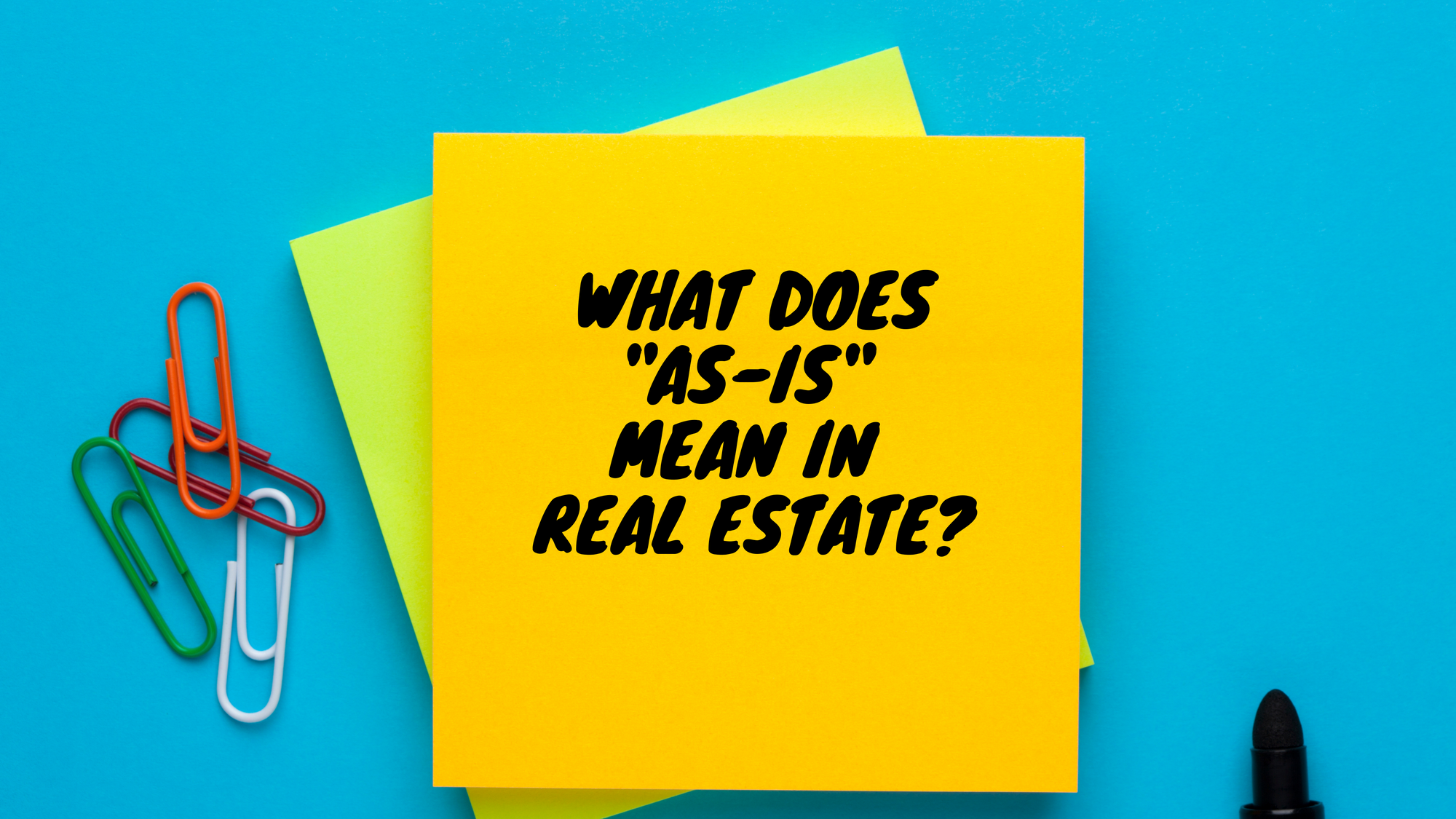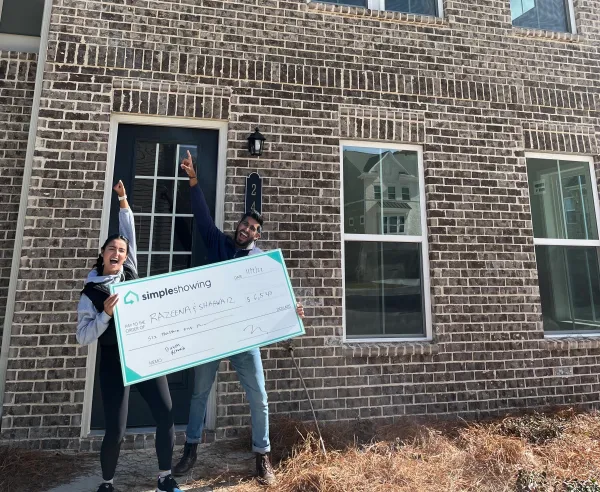If you’re in the market for a house, you’ll probably come across at least one or two listings that include the words “as-is.”
For some, this is a giant red flag. Others would think they’ve found a diamond in the rough.
The truth is that neither is 100% accurate, so it’s important to understand what an “as-is" property really is before you decide whether or not it’s worth considering.
What Is an "As-Is" Property?
In real estate, an as-is property is one that’s listed for sale in its current state, meaning that any issues or problems with the home will not be addressed by the seller.
With a traditional home purchase, if the buyer discovers something wrong with a house (e.g. a roof leak, broken HVAC, etc.), they can request that the seller pay to have it fixed before closing. In this common scenario, the buyer’s purchase of the home is contingent on the repairs being made prior to the close of escrow.
When a property is listed "as-is", it generally suggests that the seller won’t entertain any such requests. Buyers can either take the home in its current state or look elsewhere.
Common Issues with As-Is Properties
To give you a better sense of what an as-is property might entail, here are some common examples of defects that the seller wouldn’t be repairing, despite putting their house on the market:
- Asbestos
- Polybutylene plumbing
- Broken or malfunctioning systems (e.g. HVAC)
- Faulty or leaking roof
- Mold problems
- Structural issues
- Termite damage or infestation
- Siding rot
Of course, depending on the home, there could be any number of different issues the owner won’t be addressing before the sale. At the same time, the issues could be minimal, but the owner simply wants to sell the home ASAP.
For example, many as-is properties are foreclosed homes or short sales. After repossessing a property, banks often decide it’s not worth making minor repairs because they simply want to recoup as much of their loss as possible and not incur any further expenses.
What "As-Is" Is Not
With that being said, selling a property as-is doesn’t mean the homeowner can just list it, walk away, and simply accept whatever price they can get. Many sellers are under the misconception that the “as-is” label relieves them of any responsibility to ever disclose what’s wrong with the home.
Laws about disclosure do differ by state, though. In some, homeowners aren’t obligated to tell a potential buyer about any issues with the house if they have never occupied the residence themselves - for example, an investor. In real estate, this is known as “Caveat Emptor”, more commonly referred to as, “let the buyer beware.”
However, every state requires that sellers answer questions about the house honestly. So, you can list your property as-is, and you can choose to withhold whatever information you like, but you’ll still have to truthfully answer any questions a potential buyer poses.
Furthermore, a real estate agent is legally required to disclose anything the seller tells them that represents a significant or material defect of the property. This is because their services fall under the Consumer Protection Act.
Therefore, “as-is” should never be taken to mean that the buyer has no options for learning about potential issues.
Should You Buy an As-Is Home?
The short answer is…maybe.
As-is homes often carry a bad connotation for reasons we just touched on. Many buyers suspect that the only reason a home is listed that way is because it suffers from major problems that would be extremely expensive to fix.
In other words, they see “as-is” and think “not worth it.”
However, this isn’t always the case.
Again, quite often, properties are listed this way because they’ve been foreclosed on and banks don’t want to spend even a minimal sum to switch out a sink or replace some broken windows. If everything else is right with the house, this wouldn’t be an issue for many buyers, especially if the "as-is" house is listed below market price.
The seller could have also run into financial troubles. If they had the money, they’d make the necessary repairs. Unfortunately, in their current situation, they just need to sell their home right away.
At the same time, it’s worth pointing out that not all "as-is" homes are going to be bargains, either. While it’s true that they often sell for less than comparable homes because of major defects, lower asking prices tend to attract investors. Someone looking to flip a house might not bat an eye at having to spend thousands on updating a kitchen and will even bid aggressively to win the as-is property.
In short, it’s absolutely worth considering any "as-is" homes you’d otherwise be interested in.
Property inspection is critical
Perhaps the most important rule when considering an "as-is" property is that you must have a property inspection done during due diligence. This is always good advice, of course, but it’s essential for these types of homes. Keep in mind that you can also get specialized home inspections as well - such as an air quality test, radon inspection, termite inspection or structural inspection.
While you should still ask the real estate agent any questions you have, don’t proceed with the sale until you hear from your inspector. When someone is selling "as-is", they might not even be aware of all the issues with their house. After all, what does it matter if they’re not going to fix them?
Tell the inspector what you already know about the house and then let them evaluate it. They’ll let you know whether or not the home is worth purchasing.
You Don't Need to Buy an "As-Is" Home to Save Money
If you come across an attractive "as-is" home during your search and it gets a clean home inspection, there’s no reason you shouldn’t buy it if you’re willing to address any minor pre-existing issues.
However, you shouldn’t feel as though an as-is property is your only chance to save money on a house you’ll be glad to call home.
At SimpleShowing, here's how we help during the home buying process: we educate you about the market, help you book showings and connect with an experienced real estate agent. Best of all, with our Buyer Refund Program, you’ll actually receive a piece of your agent’s commission. On average, we’re able to give buyers more than $5,000 back at closing. This refund can also be reflected as a credit on the purchase agreement.
Want to learn more? Contact us today and let’s talk about finding you the perfect house.






